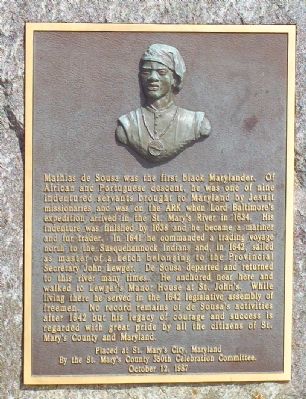I am my father’s son.
He read the Encyclopedia
Britannica for entertainment, and it stood on a long shelf in his bedroom. When he was dying, we all clustered around his
deathbed, praying and singing for a couple of days. But prayer and study were tied together in our lives, and we took time to use the encyclopedia in his room. In fact, as death got closer,
perhaps an hour away, two of his children were in the room with him, checking a footnote in the encyclopedia.
So this morning, I bounced out of bed hunting for my Oxford English Dictionary, my beloved OED. Some barbarian
displaced/misplaced and/or failed to replace it during a recent domestic
renovation/demolition.
I went to bed last night puzzling about why no one
translates “ger” (in Hebrew) or “xenos” (in Greek) in the Bible as “immigrant.” Nearly every translation of the Bible says “stranger.” Why? When
I got up, I was on fire with a potential solution. How old is the word “immigrant”?
And, by God, I was right!
It is a new word, or fairly new as Biblical translations go. I could not lay my hands on my OED, but the Online Etymology Dictionary says that the word “immigrant” first appeared
in America in 1792. It started as an
American English word. The French,
around the same time, were talking about the émigrés, the people who fled
France to avoid the guillotine.
Americans needed a new word to talk about the shiploads of new
Americans. It is based on a Latin word
(immigrare), so inventing the word was not a great stretch; but the word is
pretty new, and it was American at the outset.
So translators did not use the word before the 19th century
-- because it wasn’t a word.
To be sure, there have been translations made since 1792. But when you are translating into English and
already know the beauty and strength of several translations, it is hard to
step away from them. A translator will
use words that have worked well previously.
If translators were working with the Hebrew and Greek, without any
knowledge of English versions, some would translate the words as “immigrant.” But they all know the music of the “stranger,”
and can be seduced by the music.
Still, I see another reason to stick with the word
“stranger” most of the time, even when you know that “immigrant” is a good
translation.
The starting point for this word concerns Abraham and his
descendants in Egypt, up to Moses – “strangers in a strange land.” The magic of this phrase is that the word “strange”
is used twice, with two different perspectives.
“We were strangers”: that is, in the eyes of the Egyptians, we (Hebrews)
were foreigners. “In a strange
land”: that is, in our (Hebrew) eyes,
Egypt was a foreign land. The phrase
reflects the perspective of the Egyptians, and then the perspective of the
Hebrews. You can’t do that with
“immigrant.” You can’t say, “We were
immigrants in an immigrant land.” We
were exotics in an exotic land; we were foreigners in a foreign land – those work,
but not as well as “stranger” – to my ear.
The equivalence of hosts and guests is an ancient and
fascinating issue, and turns out to be a matter of huge importance, it seems to
me.
In Greek, the word “xenos” means “stranger,” or “host,” or “guest.” That it, it refers to people whom you do not
know. When you come in contact with
strangers, politeness – that is, the rules of civilization, some civilization,
any civilization – requires that you and the stranger deal with each other
respectfully. He is a stranger to you
and you are a stranger to him. The issue
of mutual respect overshadows the issue of who is sedentary and who is
traveling when the meeting occurs. What
decides who is host and who is guest? If
you are both nomads and you meet at a waterhole, who has been there longer?
Does that decide the issue of who is host, who is guest? Or: who has more food? Does that decide who is who host, who is
guest? Our language suggests that these
are important questions. Greek does not
distinguish between host and guest.
Latin has the same challenge/blessing/difficulty. The word “hostis” means “stranger” or “host”
or “guest.” When St. Jerome translated the
Bible into the language of the common man (that is, Latin, of course), he
translated Hebrew “ger” and Greek “xenos” as “hostis.”
In the first five books of the Bible (the Torah, the Pentateuch),
Moses deals with the issue of how to treat foreigners with great eloquence and
power. The issue that he deals with has
complicated details, but is simple at heart.
There’s US, and there’s THEM: how do we think about them, how do we
treat them? There are some interesting
details about behavior, but what Moses comes back to, repeatedly, is simple:
remember our experience as strangers, and do not do to THEM what was done to
US. Remember, remember, remember – and sympathize
because you remember. There is an US and
there is a THEM, but rule number one about THEM is an appeal to the heart, not
a law: remember and sympathize. Who’s “ger”? It depends on your perspective.
It seems to me that this is exactly the same question that
Jesus dealt with, and Jesus adopts the same approach as Moses. The words are a little different, but the
question is the same: “Who is my neighbor?”
Jesus, like Moses, doesn’t challenge the difference between US and THEM,
between neighbor and stranger. His
approach to the question is not to define the line, and list the rules. Like Moses, he urges sympathy. He responds with the story of the Good Samaritan. In that story, what is clear is that the
priest and the Levite on the road do not feel obliged to help the man attacked
by bandits, because he is not one of US.
The injured man wants US to be a broad category; he needs help from
whoever passes by. The priest and Levite
have a clearly defined and somewhat smaller, somewhat more exclusive, US. The Samaritan has a broader definition of
US. He understands, hears, feels, the
appeal from the victim in the road. In
this simple story, Jesus does the same thing that Moses did: he asks his
followers to see the question of US versus THEM through the eyes of the person
on the other side of the divide. Moses
says, remember what it’s like to be THEM.
Jesus says, don’t define US from the inside, but from the outside, from
the perspective of the needy who need the definition to be broad.
If you want to say, the host should be quick to understand
the view of the guest, and the guest should be quick to understand the view of
the host, it may be simpler to avoid words that define the host/guest
relationship. Remember what’s like to be
a stranger in a strange land (says Moses), and let the issue of need define who
has a claim on you (says Jesus).
To summarize: (1) translators have not used the word “immigrant”
to translate “ger” or “xenos” because the word is new. But (2) “stranger” may still be the best translation,
because it makes it a little easier to approach the boundary between US and
THEM in a balanced fashion, encouraging each side to understand the other side.
(3) The way we treat strangers/immigrants
is startlingly significant in the teaching of both Moses and Jesus.
 I enjoy Elmore Leonard. His Westerns are mind candy, but with good grit. I am grateful to him for getting me to pay more attention to Jose Marti, who showed up in the background of one of his stories. I also think very highly of Robert Duvall, who played Boo Radley in To Kill a Mockingbird, had parts in a long list of great movies, and directed his own powerful and complex movie, The Apostle. So when I came across an old movie with screen play by Leonard, co-starring Duvall, I checked it out. Joe Kidd, starring Clint Eastwood, 1972 – when Clint’s glints were amazing.
I enjoy Elmore Leonard. His Westerns are mind candy, but with good grit. I am grateful to him for getting me to pay more attention to Jose Marti, who showed up in the background of one of his stories. I also think very highly of Robert Duvall, who played Boo Radley in To Kill a Mockingbird, had parts in a long list of great movies, and directed his own powerful and complex movie, The Apostle. So when I came across an old movie with screen play by Leonard, co-starring Duvall, I checked it out. Joe Kidd, starring Clint Eastwood, 1972 – when Clint’s glints were amazing.


